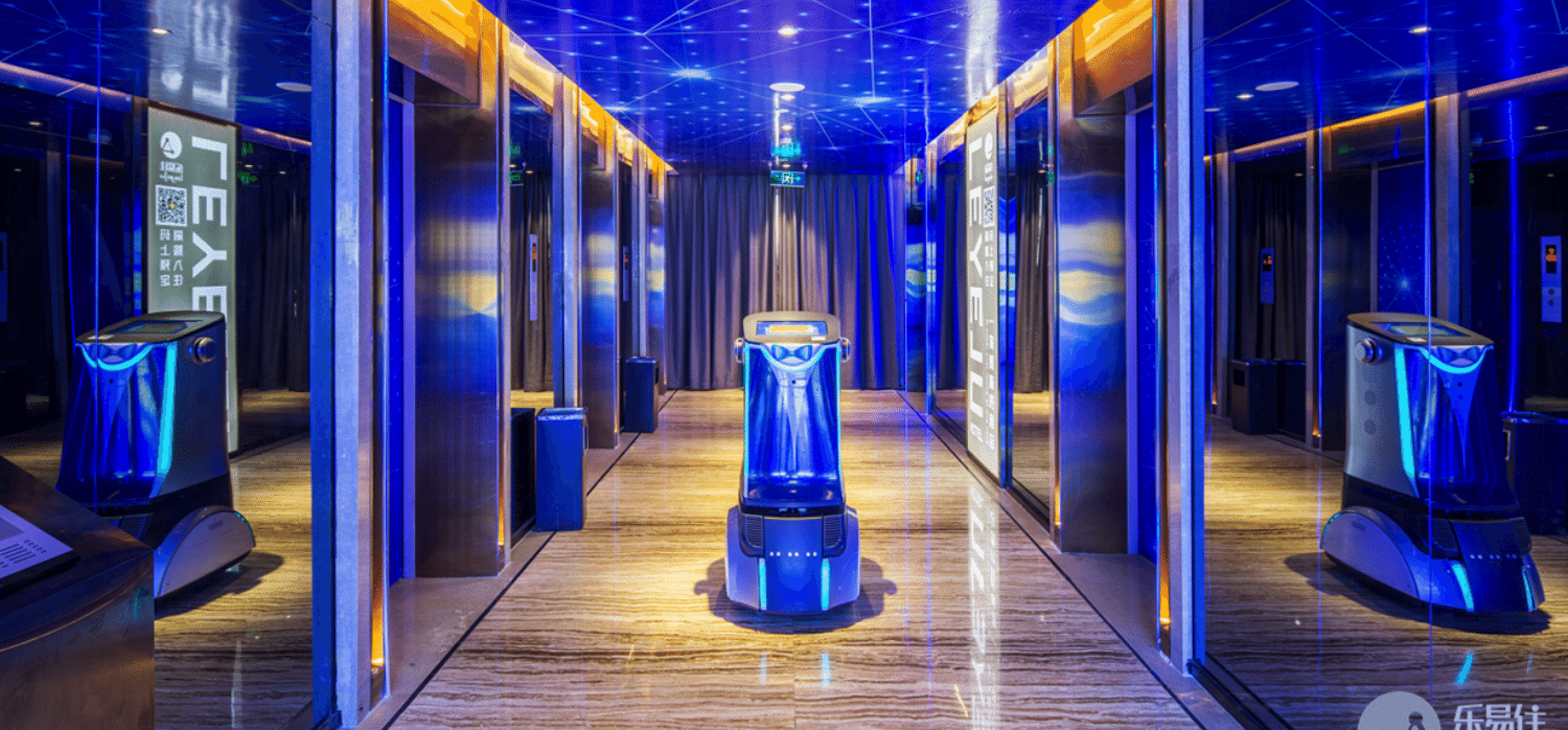Leyeju is expanding its artificially intelligent hotels in China – where a robot shows you to your room and your curtains draw themselves. Rose Dykins reports
Since Covid-19, offering a contactless customer experience has been key for future-proofing businesses. And in China, Leyeju smart hotels offer an entirely automated stay thanks to Internet of Things (IoT) technology – so guests don’t have to touch a thing.
Launched in 2018, Leyeju currently runs nine smart hotels in Chengdu, Shenzhen, Guangzhou and Hangzhou, bookable via online travel agents such as Trip.com.
Reports about the brand’s imminent expansion vary – between 20 and 150 new hotels across the country – but it’s clear why Leyeju’s proposition is attractive in a post-Covid-19 travel landscape.
Guests enter a Leyeju hotel to find a small lobby with an unstaffed reception and no concierge, which is said to save 25 per cent on construction costs, and creates more space for guest rooms (and, therefore, more revenue).
Customers check in via biometric facial recognition technology, then robots guide them to their rooms. This means only two members of staff are needed to run each hotel – though they are really just on standby in case of emergencies.
 The properties’ lighting, air conditioning, TVs and curtains are all automatically adjusted – meaning guests don’t need to touch light switches, buttons or TV remotes.
The properties’ lighting, air conditioning, TVs and curtains are all automatically adjusted – meaning guests don’t need to touch light switches, buttons or TV remotes.

Using IoT technology, Leyeju hotel rooms gather data about how a guest interacts with their surroundings, making constant enhancements to improve their experience.
When a guest checks out, the electricity and water supply to their room is cut off until it is required again. Part-time housekeeping staff are “on demand”, summoned via an app to clean rooms as and when they are needed.
Following Covid-19, Leyeju hopes to build on its appeal to younger, middle-income customers. and its vision of “releasing technology value and creating smart life” for a new breed of traveller who seeking a touch-free stay.
As well as reassuring guests who may be nervous about contamination in a hotel environment, smart hotels enjoy cost-efficiencies. Overall, smart hotels reportedly enjoy 40 per cent lower operating costs than conventional hotels, due to their streamlined spaces, processes and technology.
Smart hotels originally began in Japan in 2015. Since then, other chains have been launched, including FlyZoo Hotel, owned by Chinese eCommerce giant Alibaba Group Holding.
The Hangzhou property has no staff, and uses facial recognition technology to give access to rooms.



